We have a confession: we hate "best of" lists. Thousands of books are published every year and to try to whittle those books down to a few "best" seems near impossible. Whether a book is good/important/groundbreaking/heartbreaking or not is subjective, and we recognize that. We recognize it's ridiculous to claim to create a definitive list.
Still, as literature lovers, we can't help but want to highlight some of the books we've read this year that we want to tell everyone about. These novels, short story collections, and poetry collections are books that, for whatever reason, stayed with us long after we finished reading them, books that changed us, or felt important or innovative, or simply were so much fun we want everyone to read them. These particular books published in 2016 are the books we loved, books we're still talking about and recommending to friends and family when they ask us what they should read next. We highlight these books with the awareness that these are personal recommendations, that the list is built upon our personal tastes. In addition to these books, we found many, many other new books written by APIA writers that are worth picking up.
That's where you, the reader, come in: We welcome your additions in the comments section. Tell us what books changed YOU this year and help us make this an evolving conversation filled with APIA book recommendations.
— Karissa Chen, Senior Literature Editor & Eugenia Leigh, Poetry Editor
A friend said to me recently that 2016 was a horrendous year on a macro level, but a beautiful one on a micro level. In between mass homicides and hate crimes plus an ongoing refugee crisis, among numerous other headlines that included the words “death toll,” four of my dearest friends gave birth to healthy babies. An earthquake killed 290+ people in Italy on my birthday, but I also married my best friend this year. I know these small moments of bliss won’t undo the terrors of our increasingly fraught world, but sometimes they’re all we have to survive.
To have a relatively positive micro year is a blessing and a privilege—one we don’t get every year. One some of us don’t get in a lifetime. And yes, there are still many pockets of pain in my life, and likely in your life as well. But the longer I live, the more I crave beauty in the middle of that pain. This year contained some of the best days of my life, but it also contained entire days spent paralyzed in grief. It makes sense then that the poetry books that spoke loudest to me are the books that teach us to survive while staring our afflictions square in the eye. They are books that refuse to give in and refuse to give up.
2016 was a remarkable year for APIA poets with dozens of newly published collections, many of which startled me and schooled me. But instead of opting for a rough survey of a larger number of valuable books, I felt moved to offer deeper, lengthier insights on five full-length poetry collections I can’t stop thinking about. Each of these wildly diverse books changed and challenged me both as a poet and as a human being. They are the voices that urged me, in moments of darkness, to get the hell up—not because the world is better today, but because we can be better than the raggedness of our world.
— Eugenia Leigh
House A by Jennifer S. Cheng (Omnidawn)
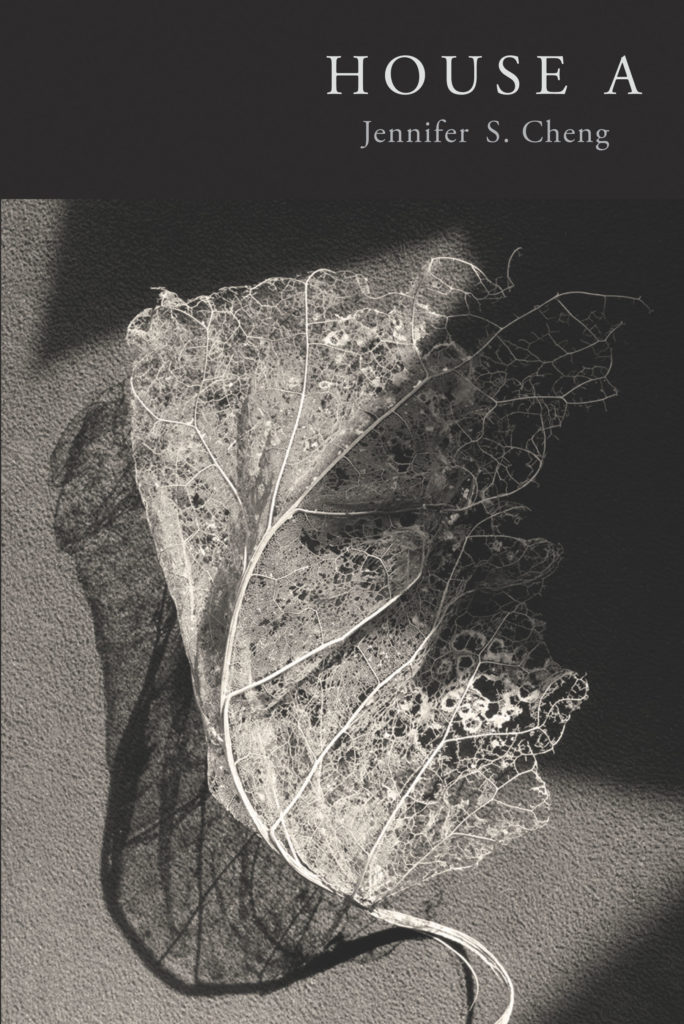
Dear Mao,
We are all in aberrant atmospheres, hearing the dissonant tonal drifts
blaring in our ears. We are all on hunt.
House A is both an education and an experience, in which I felt perpetually afloat in the metaphysical, but also increasingly bound to the earth and its dirt. This impressive debut collection, selected by Claudia Rankine for the Omnidawn 1st/2nd Poetry Book Prize, astounds as a gentle, intelligent meditation on the primal longing for anchoring, especially in those who have been displaced or have inherited the displacement of previous generations. Jennifer S. Cheng’s poems delight in the melding of spaces, subjects, the tangible and the intangible, to reflect the fluidity of existence for people who cannot easily lay claim to a home. “I knew facts and tenderness weren’t separate things but came mixed together, like a glass of cloudy lemon-tea,” one poem offers as a response to a parental history lesson.
But while we wade through astute elucidations of a dreamlike interpretation of existence, Cheng expertly grounds us in the book’s impeccable trifold structuring: epistolary reflections in “Letters to Mao,” a catalogue of spaces in “House A; Geometry B,” and lyrical instructions with a collection of images in “How to Build an American Home.” This haunting literary triptych moves us from speculations about how people come to be to exhortations about how to be a person. And this is the book’s power: it doesn’t claim to have answers, but we find answers anyway. By using scientific and mathematical language—from the definition of strata to the Heisenberg Uncertainty Principle—Cheng connects us to the land: “children of immigrants speak in earthquakes : / gaps, fissures, intervals.” Even geometry is rewritten as a reflection of who we are—“a configuration of parts, each asking itself: How do I adhere?” Ultimately, Cheng’s poems tell us that in building our American homes, we must not forget we are the house. We are, in fact, everywhere.
Brooklyn Antediluvian by Patrick Rosal (Persea)

I wore shackles
once on a boat across the largest ocean
in the universe, but I was the last among
my captive people to forget how to laugh
and the first to remember our tribal names.
Brooklyn Antediluvian grabbed me by the shoulders and shouted, “Don’t you know how powerful you are?” Patrick Rosal’s fourth and glorious collection teaches us how to survive the floods of this life: by remembering who we were before the floods came. Antediluvian. Rosal’s poems acknowledge our sufferings, but direct us toward the hope buried in the wreckage because “even a creature freaky as Grief has a rhythm to catch,” and “Sometimes sadness is just / what comes between the dancing.” An undercurrent of righteous anger against a myriad of manmade and natural injustices slinks through these poems, but the poems refuse to surrender to this anger. Instead, they remain rich in compassion and labor to return power to the lepers discarded on an island, to the boys forced to fight each other at night in a field in Balacad, and to many others forgotten or abandoned or unloved.
And this is how Rosal reinstates their power: he names the lepers. Filomena. Josefa. He names the boys. James. Junar. The weight of this naming resounds thunderously in the book’s title poem, which closes the book with a crushing and gorgeous 16-page thesis-in-couplets on the significance and necessity of names. Ten pages in, Rosal breaks these couplets with startling indentations to make sure we are paying attention: “Listen: / our names // were taken.” He later implores us again with similar couplet-cracking indentations, saying, "Metropolis, / do you hear me? Young man? I don't want // anything. I want this. I want to say / the names we've been given aloud. The ones // they took away." Here, Rosal spells out the way to reclaim ourselves in the face of tyrants and typhoons: we must tell the world how miraculous we were before they tried to rewrite us. How even now, “we move / through the universe at six hundred seventy million / miles per hour even when we are lying absolutely still.”
So Much Synth by Brenda Shaughnessy (Copper Canyon)

Adolescence
is all absolutes: if bad, one must be the very worst
to avoid being mistaken for average.
To be ordinary was just being invisible,
and surely slow naked death by ants hurts less than that.
So Much Synth demands, with a sassy tenderness, that we have the conversations about adolescence and young adulthood that we’ve long avoided. In her fourth radiant book, Brenda Shaughnessy makes piercing, clever, and sincere observations of girlhood, motherhood, and all the hoods in between with equal parts humility and humor. Shaughnessy possesses an inimitable ability to balance our horrid realities—rape culture, domestic violence—with life’s small, sparkly joys, such as the art of the mix tape, “such a delicious pain in the ass to make.” Allergic to euphemisms, Shaughnessy’s poems make plain our pains with incisive details, as in “Why I Stayed, 1997-2001”—“And, yes, I do remember / everything you threw: a chair // over our heads at a bar (Liz was / there), a mirror like a Frisbee / aimed at my knees”—and yet, as if to refuse to wallow in regrets, Shaughnessy peppers the book with musical wordplay plus a delightful synthpop/80’s soundtrack.
My favorite bit of magic in this magnetizing book is “Is There Something I Should Know?” in which Shaughnessy unleashes a brilliant 28-page gift of couplets that, at first glance, appears to serve as a survival guide for young American girls anticipating “those 700 days” of “pubescence’s acrid synthesis.” But two decades after swimming out of my own “700 days” of that special hell, I found in this kind and honest poem moments of healing I didn’t know I needed. Shaughnessy’s poetry connects intimately with the parts of us that ask, “What is beautiful, what is terrifying, / what is absurd in me?” We are afraid the answer is “nothing,” but these poems help us believe maybe the answer is really “everything.” Maybe all those years spent trying to be someone cooler than we are were not wasted, but necessary. Maybe they revealed in us a resilience we'd always possessed. After all, “we used to say / that all the time to joke / we’d given up: ‘Screw it!’ / But we hadn’t. Given up, / that is. Now here I am, / still at it.”
Night Sky with Exit Wounds by Ocean Vuong (Copper Canyon)
So you take the knife to the wall
instead. You carve & carve
until a coin of light appears
& you get to look in, at last,
on happiness.
Night Sky with Exit Wounds invites us to see and touch life’s most intimate, most harrowing moments. It shields nothing from us, as if to refuse the reader the protection that the people of Ocean Vuong’s worlds never received. But if these poems refuse to protect, they also refuse to cause pain. Vuong’s delicate and deliberate images simultaneously accentuate and curb the ferocity in his treatment of generational violence and the seen and unseen repercussions of war. His poems translate cruelty into gentleness, watching “the grandfather fucking / the pregnant farmgirl in the back of his army jeep” closely enough to notice “his blond hair flickering in napalm-blasted wind.” I was astounded when Vuong interrupted a “you” character’s rendezvous with a strange man “in the baseball field behind the dugout / flecked with newports torn condoms” to tell us “you kissed your mother on the cheek” before meeting said stranger.
Vuong’s bravery extends to his craft, as he assumes the personas of various people to whom he gives new voices, from the father writing from prison to Jackie Onassis in the moment John F. Kennedy dies. In one such persona poem, a mother tells her son, “Everyone can forget us—as long as you remember.” The fruit of that remembering is Vuong’s remarkable and observant collection. His poems cleave boldness with caution, brutality with grace, to offer us a complex picture of our world. We are neither good, nor bad, but human, he tells us, so “don’t be afraid, the gunfire / is only the sound of people / trying to live a little longer / & failing.”
The Halo by C. Dale Young (Four Way Books)

You already know what happens. You already know
how this story ends. How could you not? I removed
my shirt, the bandages, too. My wings unfurled.
The Halo masterfully unveils its story about the winged man who can’t fly like an exquisite biopic. By the time I reached the final poem in this mythological "quasi-autobiography," I not only loved this “man more monster than angel” who bandages his wings against his body and pulls on two shirts to disguise himself as the coveted “ordinary man,” but also believed fully in the facts of his existence. He was no longer a mere metaphor. Of course his wings “erupt” open. Of course they are less like the wings of swans and are more hawk-like, “with tufts of grey feathers, / more quill-like than fan-like.” C. Dale Young’s meticulous depictions of this winged man remain fiercely consistent in the book’s cinquains, throughout which we find echoes and refrains that reinforce the veracity of this man’s life.
The book’s nearly obsessive truth-telling ultimately contrasts the lies this narrator long believed. The lie that he is forever the monster. The lie that his wings cannot, must not, be loved. But it’s clear the winged man has fought and conquered these lies. He revisits his youth—particularly a car accident that forced him to learn to walk again—with a gracious wisdom that comes with time. “Admit it,” he tells himself at the book’s outset, “You return to your past because you / have gained some kind of knowledge to interpret it.” We then see “the titanium device with its four pins” rewritten as a halo, a representation of the transformation to follow in the rest of the poems. Throughout this retelling of a lifetime of excruciating concealment, Young writes with a profound empathy. And the miracle of Young’s book is this: as we are moved to empathize with this winged man, we find ourselves empathizing with—and even loving—the parts of ourselves we also long believed were unlovable.
Check out Senior Literature Editor Karissa Chen's 2016 Fiction Picks here.






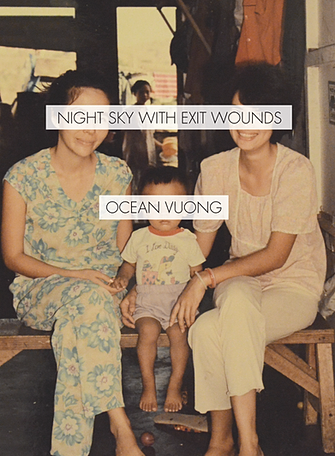

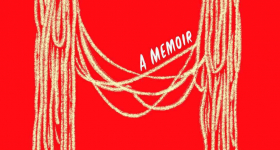
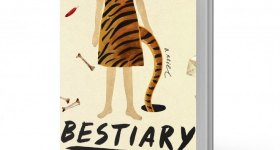
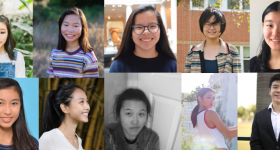
Comments